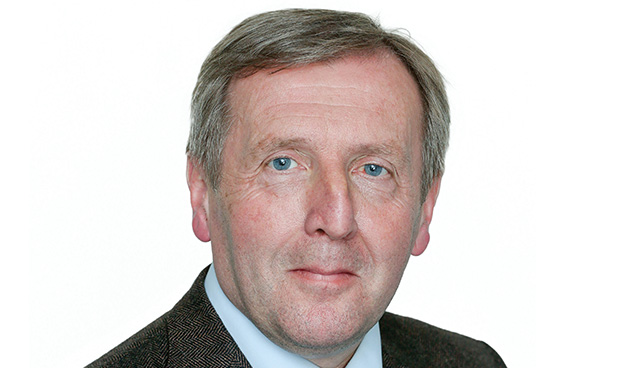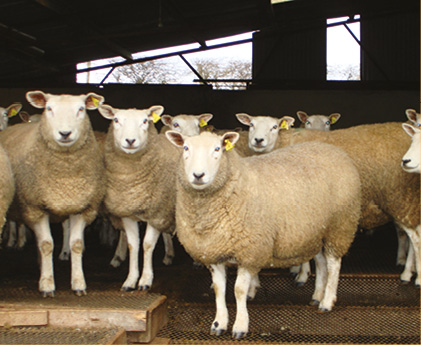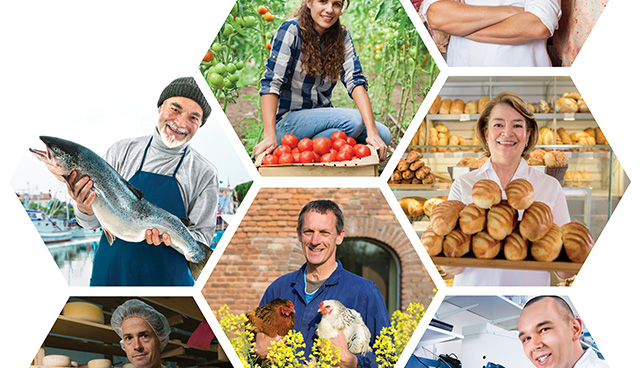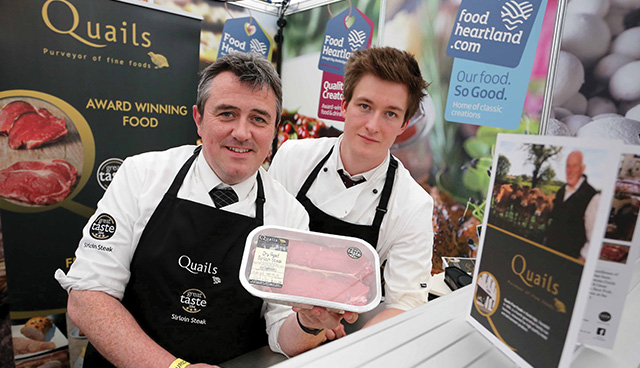Agriculture to remain a key driver of the Irish economy


Ireland’s Minister for Agriculture, Food and the Marine Michael Creed TD believes that Irish farming can look forward to a sustainable future.
A growing global population needs fed and Ireland will help meet this requirement.
This principle was previously enshrined in the Harvest 2020 report and has been further bolstered courtesy of the targets set in the recently agreed Food Wise 2025 strategy. However, major challenges look set to test the mettle of Irish farming over the coming years. The most obvious of these are Brexit and the reform of the Common Agricultural Policy (CAP).
The volatility that continues to characterise international commodity markets is another issue which Irish agriculture must address head-on.
According to Creed, the industry’s response to these matters will focus on its ability to produce food of the highest quality while, at the same time, meeting the sustainability standards demanded by consumers the world over.
The Minister confirmed to Agribusiness magazine that Irish agriculture must also be given the opportunity to build on its heritage in ways that fully reflects its family farm ethos and a proven track record of creating a countryside that can be enjoyed by everyone.
“The agri-food sector is our largest indigenous sector. It is vital that we recognise the role that our industry has played in the economic recovery and continued growth.
“The sector creates valuable jobs in rural communities the length and breadth of the country. More than 173,000 people and their families rely on it for their livelihoods and we have a multinational sector, with a global footprint and reputation, built on the efforts of these rural communities.”
Creed is mindful of the fact that Irish agriculture underpins a food sector that is very export focussed. “We live in a volatile world, whether it be global economic growth, energy prices, input prices, or even world food prices. Nonetheless, the outlook remains largely positive, with continuing increases in global population and urbanisation driving demand for food and agricultural output, particularly in emerging economies.
“Of course, that growth is by no means linear. It is punctuated by geo-political uncertainties, weather events, competitive pressures and other risks. On the other hand, there are also significant opportunities for growing and developing existing and new markets. Availing of such opportunities requires a deep understanding of individual market segments.
“With this in mind, the market prioritisation exercise, commissioned by my department, and carried out by Bord Bia, will focus our global marketing efforts. We will of course continue to liaise closely with industry on trade matters, because they are the people who actually have to do business in the targeted markets.”
Creed also recognises the need for a constructive approach to be taken to the challenge of Brexit. Commenting on the upcoming reform of the Common Agricultural Policy (CAP), the Minister says that he welcomes the publication of the White Paper recently published by EU Farm Commissioner Phil Hogan. It sets out a broad vision and template for the CAP after 2020.
“Ireland welcomes the commitment that direct payments should remain an essential part of the CAP as they provide an important safety net for family farms and ensure there is agricultural activity in all parts of the EU.
“It is hugely important for Ireland that we now sort out the framework for a future EU-UK relationship.”
“The importance of direct payments is evidenced by the results of the 2016 Teagasc National Farm Survey, which indicate that they account for an average of 75 per cent of family farm income. It is noted that the communication sets out a number of possible options to improve the targeting of direct payments.”
According to Creed, the communication considers that CAP should increase its level of environmental ambition in terms of delivery of public goods related to soil, water, biodiversity, air quality, climate changes and the provision of landscape amenities; a principle to which Ireland can subscribe.
“While the existing CAP already delivers significant levels of public goods across many of these areas, further work can be done in this area,” he says. “Ireland strongly supports the European Commission in its desire as set out in the communication, to decrease the bureaucracy and administrative burden for both national administrations and farmers.
“Ireland has always been a proponent of greater subsidiarity and in principle welcomes the push for greater subsidiarity for Member States for the very reasons set out in the communication that ‘in the EU’s highly diversified farming and climatic environment, neither top down nor one-size-fits-all approaches are suitable to delivering the desired results and EU value added.”
The Irish Government continues to regard the maintenance of a strong, effective and well-financed CAP as being essential to ensure that the policy continues to deliver in terms of maintenance and protection of family farms, production of high quality safe food to the highest standards, development of rural areas, employment creation and delivery of public goods.
In the view of Creed, the future CAP will underpin and play a major role in the delivery of Ireland’s agri-food strategy – Food Wise 2025, a collaborative strategy drawn up by stakeholders, which sets ambitious and deliverable targets for the sector up to 2025.
The UK is a critically important trading partner for Irish business and, in particular, for the Irish agri-food sector. Some 39 per cent of all Irish agri-food exports (€4.8 billion) went to the UK in 2016. Brexit poses enormous challenges for the sector by virtue of this reliance on the UK market, and the most immediate challenge has been the impact caused by the significant drop in the value of sterling against the euro.
Some of the anticipated longer-term challenges (in the event that there is no agreement on the finalisation of a framework for the future relationship) may include tariffs; the maintenance of regulatory alignment and the certification of animal and plant health products for import and export. There may also be difficult challenges in relation to potentially restricted access to fishing grounds and resources.
Creed’s Brexit priorities include the need for continued free access to the UK market, without tariffs and with minimal additional customs and administrative procedures.
“We also want to minimise the risk from UK trade agreements with third countries. From an Irish perspective we have achieved the goals we set out to achieve in phase one of the Brexit negotiations. These include the maintenance of the Common Travel Area and the protection of the Good Friday Agreement.
“We have no intention of stepping back from the UK market. On the contrary, we will redouble our efforts to build on our consumer reputation and strong relationships on our neighbouring island.”
“On the border issue, we have achieved a commitment from the UK Government that, in avoiding a hard border, they will maintain full regulatory alignment with those rules of the internal market and customs union which, now or in the future, support north-south cooperation, the all-island economy and the protection of the Good Friday Agreement.
“It is hugely important for Ireland that we now sort out the framework for a future EU-UK relationship.”
Creed is quick to confirm the many challenges that have been faced by Irish tillage farmers over the past two years. He says: “The tillage sector, as with other farm enterprises, faces various challenges and must continue to develop in order to remain competitive. While the overall cereal acreage in 2017 was lower than for the previous year, the harvest estimate of 2.3 million tonnes was up on the 2016 figure of 2.18 million tonnes.
“As it turned out, 2017 was a record year for spring barley yields and the value of straw was significantly higher, albeit poor autumn conditions resulted in some straw losses. While international market trends, coupled with domestic planting intentions, will have a significant bearing on output and prices in 2018, there is room for cautious optimism regarding grain prices next harvest.
“On a broader level, the blueprint for the development of the agri-food sector as a whole, including the tillage sector is Food Wise 2025. This document contains a number of priority actions to support the development of the tillage sector. Delivery of these is assigned to different stakeholders.
“My department implements a number of actions such as the coupled protein payment scheme, TAMS tillage measure, seed certification scheme, all of which help to underpin the competitiveness of the sector and position it to take advantage of market opportunities that will arise.
“As a sign of further commitment to the agricultural sector, €25 million was secured as part of 2018 Budget to facilitate the development of a new Brexit response loan scheme which will apply to farmers, including tillage farmers, fishermen and food businesses in 2018 and beyond.”
Creed concludes: “I want to strongly restate our collective determination to achieve the growth and sustainability ambitions in Food Wise 2025. Our ambition is to deliver jobs for our people, maximise the incomes of our farmers, and protect and enhance our rural environment.
“We all recognise the huge task involved in this. But we also see enormous opportunity on UK, European and global markets. We intend to pursue those opportunities relentlessly. We have no intention of stepping back from the UK market. On the contrary, we will redouble our efforts to build on our consumer reputation and strong relationships on our neighbouring island.
“Of course, we recognise the potential pitfalls of Brexit – but we know where we want the current negotiations to go and we are determined to get there and we will work together to manage the commercial impacts of uncertainty and volatility during the negotiation phase.
“We have a proud record on environmental sustainability in our agri-food production systems but we recognise that we must do much more to meet our national emission targets, and to ensure that our dairy expansion does not compromise water quality or biodiversity.”






